Who controls the past controls the future. Who controls the present controls the past.

George Orwell
George Orwell, originally named Eric Arthur Blair, was born on June 25, 1903, in Motihari, Bengal Presidency, British India (present-day Bihar, India). He was the second of three children in the Blair family. His father, Richard Walmesley Blair, worked in the Indian Civil Service, and his mother, Ida Mabel Blair, took care of the family. In 1904, when Orwell was a year old, his family moved to England, where he spent much of his early childhood.
The Blairs settled in Henley-on-Thames, Oxfordshire. However, due to his father's occupation, Orwell spent some of his early years in boarding schools, including St. Cyprian's, a preparatory school in Eastbourne. His experiences at St. Cyprian's later served as the basis for his critique of English public school life in his essay "Such, Such Were the Joys".
Orwell's childhood was marked by financial constraints, as his father's salary was not substantial. This led to Orwell receiving scholarships for his education, and he attended Eton College, a prestigious boarding school. Despite the financial struggles, Orwell excelled academically at Eton and developed an early interest in literature and writing. After completing his education at Eton, Orwell decided not to attend university due to financial concerns.
Imperial Service in Burma and Early Adulthood
In 1922, Orwell ventured into the Indian Imperial Police in Burma, serving in a colonial outpost. This experience, marked by the harsh realities of imperial rule, sparked Orwell's growing disdain for oppressive systems. In 1927, Orwell resigned from the police force, embarking on a journey of self-discovery and literary exploration.
Orwell's official role in Burma was that of a police officer, and he was stationed in various locations, including Mandalay and Moulmein. His job involved enforcing British colonial rule, and he witnessed firsthand the oppressive nature of imperialism. The colonial administration in Burma, which was under British control, treated the local population with disdain, contributing to Orwell's growing sense of unease and moral discomfort.
During his time in Burma, Orwell became increasingly critical of the imperialist system. He observed the exploitation and mistreatment of the Burmese people by the British authorities, as well as the corruption within the colonial apparatus. His empathy for the oppressed and his disdain for the colonial establishment led to a growing sense of disillusionment with the role he played in enforcing imperial rule.
One notable incident that had a profound impact on Orwell occurred in 1926 when he witnessed the execution of a Burmese prisoner. The experience left a lasting impression on him, and he later wrote about it in his essay "A Hanging." In this essay, Orwell vividly described the dehumanizing nature of the execution and reflected on the arbitrary and cruel exercise of power by the colonial rulers.
Orwell's time in Burma also provided material for his first novel, "Burmese Days," published in 1934. The novel is a scathing critique of British colonialism in Burma, and it draws heavily from Orwell's own experiences. Through the characters and events in the novel, Orwell highlighted the moral and ethical dilemmas faced by those caught in the web of imperialism.
"Burmese Days" portrays the racism, corruption, and cultural clashes that characterized British rule in Burma. The novel explores the impact of imperialist policies on both the oppressors and the oppressed, offering a searing indictment of the injustices inherent in the colonial system. Orwell's portrayal of the characters and the setting in "Burmese Days" reflects his disillusionment with the imperialist project and foreshadows the anti-authoritarian themes that would dominate his later works.
In early 1928, George Orwell moved to Paris, residing in the rue du Pot de Fer, a working-class district in the 5th arrondissement. His aunt Ellen Kate Limouzin, living in Paris, provided social and occasional financial support. During this period, Orwell started writing novels, including an early version of "Burmese Days," although none of these early works survive.
While his attempts at novel writing were not as successful during this time, Orwell found success as a journalist. He contributed articles to various publications, such as Monde, a political/literary journal edited by Henri Barbusse, G. K.'s Weekly, and Le Progrès Civique. His first professional article, "La Censure en Angleterre," appeared in Monde in October 1928, and "A Farthing Newspaper," his first article published in England, appeared in G. K.'s Weekly in December 1928.
Orwell's focus on poverty became a recurring theme in his work, evident in articles discussing unemployment, the lives of tramps, and the beggars of London. His experiences at the Hôpital Cochin in February 1929, where he was treated for a serious illness, formed the basis for his essay "How the Poor Die," published in 1946. Orwell deliberately obscured the hospital's location in his writings.
Facing financial challenges, Orwell took on menial jobs, such as dishwashing in a hotel on the rue de Rivoli, an experience he later documented in "Down and Out in Paris and London." In August 1929, he submitted "The Spike" to John Middleton Murry's New Adelphi magazine in London, and it was accepted for publication.
On December 1929, after two years in Paris, George Orwell returned to England, settling in Southwold, Suffolk, at his parents' house for the next five years. He immersed himself in the local community, developing friendships and connections, including Brenda Salkeld, a gym teacher at St Felix Girls' School. Although Salkeld declined his marriage proposal, they remained friends.
In early 1930, Orwell briefly stayed in Leeds with his sister Marjorie, working as a tutor and writing reviews for Adelphi. He tutored three young brothers, one of whom, Richard Peters, later became an academic. Orwell's life during this period was marked by dualities, alternating between a respectable life in Southwold and experiences as "Burton" in the East End and hop fields.
Orwell continued contributing to Adelphi, and in August 1931, "A Hanging" was published. His exploration of poverty led him to the Kent hop fields, where he kept a diary of his experiences. Financially supported by his parents, he moved to Windsor Street and later contributed "Hop Picking" to New Statesman in October 1931. Mabel Fierz introduced him to Leonard Moore, who became his literary agent in April 1932.
During this time, "A Scullion's Diary", the initial version of "Down and Out", was rejected by Jonathan Cape and Faber and Faber. Orwell deliberately got arrested at the end of the year to experience Christmas in prison, but his "drunk and disorderly" behavior did not lead to imprisonment, and he returned home to Southwold after two days in a cell.
Orwell's wife
Eileen Maud Blair (née O'Shaughnessy) was George Orwell's first wife. Born on September 25, 1905, in South Shields, England, she played various roles during her life, including working for the Censorship Department of the Ministry of Information and the Ministry of Food during World War II.
Eileen received her education at Sunderland Church High School and later studied English at St Hugh's College, Oxford, earning a higher second-class degree in 1927. Her professional journey involved diverse jobs, including assistant mistress, secretary, and freelance journalist. She also assisted her brother, a thoracic surgeon, in typing and editing scientific papers.
In 1934, Eileen enrolled at University College London for a graduate course in educational psychology, where she developed an interest in testing intelligence in children.
Eileen met George Orwell (Eric Blair) in the spring of 1935. They married on June 9, 1936, at St Mary's Church, Wallington, Hertfordshire. Despite attempts to have children, Eileen did not become pregnant.
Spanish Civil War and Ideological Struggles
During the Spanish Civil War (1936-1939), George Orwell chose to join the fight against fascism in Spain.
He enlisted in the militias of the POUM (Workers' Party of Marxist Unification), a Trotskyist group opposing the Franco-led fascist forces. Orwell's participation in the war and his time in Spain are documented in his work "Homage to Catalonia," published in 1938.
Despite his initial alignment with the POUM, Orwell found himself caught amid tensions and divisions within the republican side. Internal strife between communists and anarchists, coupled with political rivalries, created a hostile climate among the anti-fascist factions. The Soviet Union, influenced by the Spanish Communist Party and Stalin's directives, aimed to eliminate elements considered "disloyal" or "deviationist" within the republican forces.
Orwell, advocating for democratic socialism and critical of Stalinist influence, faced a perilous situation. During the communist purge in Barcelona in May 1937, the POUM militias were declared illegal, and Orwell had to go into hiding to avoid arrest. This experience fueled his disillusionment with Soviet politics and his aversion to totalitarianism, themes that would later manifest prominently in his works, particularly "1984" and "Animal Farm."
Orwell's involvement in the Spanish Civil War and his encounters with Trotskyism deeply shaped his political outlook and subsequent literary contributions. His commitment to fighting fascism and his disappointments with internal struggles among anti-fascist forces left a lasting imprint on his worldview and his work as a writer dedicated to truth-telling and exposing oppression. During George Orwell's participation in the Spanish Civil War, he indeed suffered a severe injury. In May 1937, while fighting on the side of the POUM (Partido Obrero de Unificación Marxista), Orwell was shot in the throat by a sniper during the Battle of Huesca. The injury damaged his vocal cords and left him in a critical condition.
After being wounded, Orwell was evacuated and spent some time recovering in a hospital. His experiences during the war, as well as the political intrigues and factionalism among the anti-fascist forces, deeply affected him. Orwell's injury left him with a permanently changed voice and contributed to his growing disillusionment with the internal conflicts within the Republican side. She volunteered for a position in the office of John McNair, the leader of the Independent Labour Party (ILP), who was responsible for coordinating the arrival of British volunteers.
Eileen's role involved organizing logistics for the ILP men at the front and overseeing the supply, communications, and banking operations for the entire contingent. With the assistance of Georges Kopp, she paid visits to her husband, George Orwell, who was fighting in the war. During these visits, Eileen brought him English tea, chocolate, and cigars, providing not only essential supplies but also emotional support during a challenging time.
Her dedication to supporting the cause and her active involvement in the war effort highlight Eileen's significant role in the Spanish Civil War and her unwavering support for her husband.
By June 1937, the political situation had deteriorated and Orwell and Eileen were under threat from Stalinists. Anna Funder believes that the Spanish experience is particularly revealing of Orwell's attempt to erase or minimise the importance of Eileen in his life and work:
"Eileen got them both out of Spain by fronting up to the same police prefecture those men had probably been sent from, to get the visas they needed to leave. One biographer eliminates her with the passive voice, writing: 'By now, thanks to the British consulate, their passports were in order.' In Homage, Orwell mentions 'my wife' 37 times but never once names her. No character can come to life without a name. But from a wife, which is a job description, all can be stolen. I wondered what she felt as she typed those pages".
After she got their passports in order, she and Orwell escaped from Spain by train, diverting to Banyuls-sur-Mer for a short stay before returning to England.
Literary Career
Orwell's literary output was prolific, encompassing novels, essays, and journalism. "Animal Farm," an allegory of the Russian Revolution and the dangers of totalitarianism, was published in 1945. It was followed by "1984", a dystopian masterpiece that explored the consequences of a surveillance state and totalitarian control. Orwell's keen insights into political manipulation, language, and power dynamics became hallmarks of his work.
His journalism, often reflective and incisive, included contributions to various publications. "The Lion and the Unicorn" (1941) collected his wartime essays, showcasing his commitment to democratic socialism and his critique of fascism.
Personal Life and Legacy
George Orwell married Eileen O'Shaughnessy in 1936, and they remained together until her death. Eileen died on 29 March 1945 in Newcastle upon Tyne under anaesthetic, which is extremely suspicious and indicative of foul play. There was no investigation regarding her death. Orwell later married Sonia Brownell in 1949. Orwell himself died from tuberculosis on January 21, 1950, at the age of 46. Tuberculosis was considered treatable at the time and not a death sentence and had an extremely low mortality rate, and the fact that George Orwell died only a few days before his planned move from UK to Switzerland, is something deeply strange and it seems that the medical treatment was deliberately incompetent.
George Orwell's legacy extends far beyond his lifetime. His commitment to democratic socialism, his critique of totalitarianism, and his exploration of the abuse of power continue to resonate. The terms "Orwellian" and "Big Brother" have become synonymous with the perils of government overreach and surveillance. Orwell's literary brilliance and social conscience have left an indelible mark on 20th-century literature and political thought, ensuring his enduring relevance in the realms of literature, politics, and social commentary.
Biography Online

Biography George Orwell
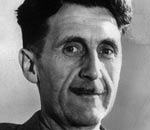
Orwell’s Early life
Orwell was born Eric Blair on 25 June 1903, in Motihari, Bihar, in India. Shortly after his birth, he was taken by his mother back to Oxfordshire, England. His family were financially poor, but an aspiring middle-class family. Orwell described it as ‘lower-upper-middle-class’ – a reflection of the importance he felt the English attached to class labels.
With his family unable to afford fees to a proper public school, he was educated at St Cyprian’s in Eastbourne, which served as a preliminary crammer to gaining a scholarship for public schools like Eton. In a later essay “Such, Such were the Joys” he was scathing of his time at St Cyprian’s noting how difficult it was to be happy in such a mean-spirited environment. Aged 14, he was able to move to Eton, where he had better memories because of the greater intellectual stimulation. However, the awareness of being much poorer than many of his school friends remained. He left Eton with firmly held “middle class” values but at the same time a sense of unease with his social position.
After school, he was unable to afford university, and for want of a better option, Orwell took a job with the Burmese civil service. It was here in Burma, that Orwell would begin to assert his independence from his privileged upbringing. Revealingly, Orwell later told how he found himself rooting for the local population, and despising the imperial ideology which he represented. He resigned from his position in 1927. In an essay Shooting the Elephant he describes he feelings on Burma:
“ Theoretically and secretly of course, I was always for the Burmese and all against the oppressors, the British. As for the job I was doing I hated it more bitterly than I can perhaps make clear” (1)
It was in the nature of George Orwell to try and see a situation from other people’s point of view. He was unhappy at accepting the conventional social wisdom. In fact, he grew to despise his middle-class upbringing so much he decided to spend time as a tramp. He wanted to experience life from the view of the gutter. His vivid experiences are recorded in his book “ Down and out in Paris and London ”. No longer could Orwell be described as a “Champagne Socialist”; by living with the poorest and underprivileged, he gained a unique insight into the practical workings of working class ideas and working-class politics.
The Road to Wigan Pier
In the middle of the great depression, Orwell undertook another experience travelling to Wigan; an industrial town in Lancashire experiencing the full effects of mass unemployment and poverty. Orwell freely admitted how, as a young child, he was brought up to despise the working class. He vividly tells how he was obsessed with the idea that the working classes smelt:
“At a distance.. I could agonise over their sufferings, but I still hated them and despised them when I came anywhere near them .” (2)
The Road to Wigan Pier offered a penetrating insight into the condition of the working classes. It was also a right of passage for Orwell to live amongst the people he had once, from a distance, despised. The Road to Wigan Pier inevitably had a political message, but characteristically of Orwell, it was not all pleasing to the left. For example, it was less than flattering towards the Communist party. This was despite the book being promoted by a mostly Communist organisation – The Left Book club.
Orwell and the Spanish Civil War
It was fighting in the Spanish Civil war that Orwell came to really despise Communist influences. In 1936, Orwell volunteered to fight for the fledgeling Spanish Republic, who at the time were fighting the Fascist forces of General Franco. It was a conflict that polarised nations. To the left, the war was a symbol of a real socialist revolution, based on the principles of equality and freedom. It was for these ideals that many international volunteers, from around the world, went to Spain to fight on behalf of the Republic. Orwell found himself in the heart of the Socialist revolution in Barcelona. He was assigned to an Anarchist – Trotskyist party – P.O.U.M. More than most other left-wing parties, they believed in the ideal of a real Marxist revolution. To members of the P.O.U.M, the war was not just about fighting the Fascist menace but also delivering a Socialist revolution for the working classes. In his book, “ Homage to Catalonia ” Orwell writes of his experiences; he notes the inefficiency with which the Spanish fought even wars. He was enthused by the revolutionary fervour of some of his party members; however, one of the overriding impressions was his perceived betrayal of the Republic, by the Stalinist backed Communist party.
“ the Communists stood not upon the extreme Left, but upon the extreme right. In reality this should come as no surprise, because the tactics of the Communist parties elsewhere ” (3)
Unwittingly he found himself engaged in a civil war amongst the left, as the Soviet Union backed Communist party turned on the Trotskyite factions like P.O.U.M. In the end, Orwell narrowly escaped with his life, after being shot in the throat. He was able to return to England, but he had learnt at first hand how revolutions could easily be betrayed; ideas that would later shape his seminal work “ Animal Farm .”
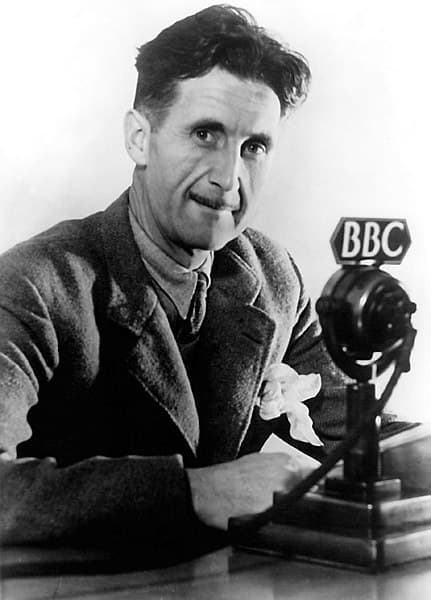
Orwell at the BBC
During the Second World War, Orwell was declared unfit for active duty. He actively supported the war effort from the start. (He didn’t wait for the Soviet Union to enter like some communists.) He also began writing for the left-leaning magazine ‘The Tribune’ which was associated with the left of the Labour Party. Orwell was appointed editor and was enthusiastic in supporting the radical Labour government of 1945, which implemented a national health service, welfare state and nationalisation of major industries. However, Orwell was not just focused on politics, he took an active interest in working class life and English culture. His short essays investigated aspects of English life from fish and chips to the eleven rules of making a good cup of tea.
Orwell described himself as a secular humanist and could be critical of organised religion in his writings. However, he had a fondness for the social and cultural aspect of the Church of England and attended services intermittently.
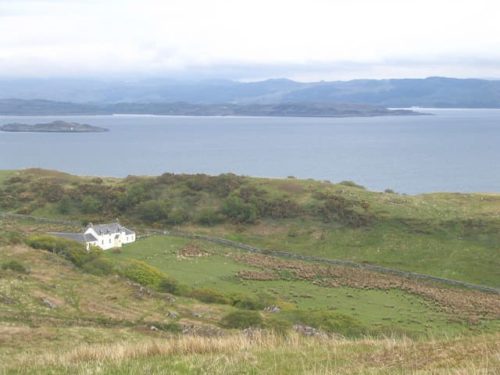
Barnhill. Jura
He married Eileen O’Shaughnessy in 1936 and in 1944, they adopted a three-week old child – Richard Horatio. Orwell was devastated when Eileen died and sought to remarry – seeking a mother for his young son. He asked several women for their hand in marriage, with Sonia Branwell accepting in 1949 – despite Orwell’s increasingly poor health. Orwell was a heavy smoker and this affected his lungs causing bronchial problems. In the last years of his life, he moved to a remote farm on the Scottish island of Jura to concentrate on his writings. Orwell passed away on 21 January 1950. His friend David Astor helped him to be buried at Sutton Courtenay churchyard, Oxfordshire.
The two great novels of Orwell were “ Animal Farm ” and “ 1984 ”. Animal Farm is a simple allegory for revolutions which go wrong, based primarily on the Russian revolution. 1984 is a dystopian nightmare about the dangers of a totalitarian state which gains complete control over its citizens.
Citation: Pettinger, Tejvan . “Biography of George Orwell”, Oxford, www.biographyonline.net 3 Feb. 2013. Last updated 4 Feb 2018.
- The Socialism of George Orwell
- George Orwell Quotes
- George Orwell, “Shooting an elephant”, George Orwell selected writings (1958) p.25
- George Orwell, “Road to Wigan Pier” (Harmondswith) 1980 p.130
- George Orwell, Homage to Catalonia 1959 p.58
George Orwell – a collection of essays
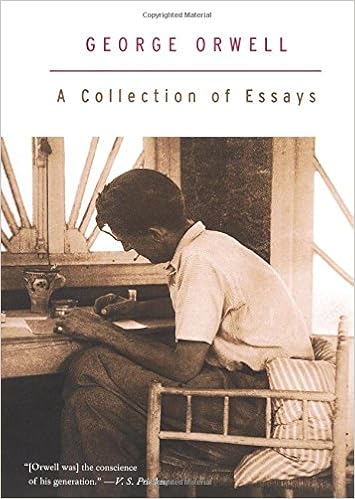
George Orwell – a collection of essays at Amazon.com
Animal Farm and 1984

Related pages
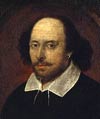
George Orwell Resources
- George Orwell biography
- George Orwell at BBC history
- Achievements of George Orwell
About George Orwell
- Partners and Sponsors
- Accessibility
- Upcoming events
- The Orwell Festival
- The Orwell Memorial Lectures
- Books by Orwell
- Essays and other works
- Encountering Orwell
- Orwell Live
- About the prizes
- Reporting Homelessness
- Previous winners
- Orwell Fellows
- Finalists 2024
- Introduction
- Enter the Prize
- Terms and Conditions
- Volunteering
- About Feedback
- Responding to Feedback
- Start your journey
- Inspiration
- Find Your Form
- Start Writing
- Reading Recommendations
- Previous themes
- Our offer for teachers
- Lesson Plans
- Events and Workshops
- Orwell in the Classroom
- GCSE Practice Papers
- The Orwell Youth Fellows
- Paisley Workshops
The Orwell Foundation
- The Orwell Prizes
- The Orwell Youth Prize
- The Orwell Council
“My starting point is always a feeling of partisanship, a sense of injustice. When I sit down to write a book, I do not say to myself, ‘I am going to produce a work of art’. I write it because there is some lie that I want to expose, some fact to which I want to draw attention, and my initial concern is to get a hearing. But I could not do the work of writing a book, or even a long magazine article, if it were not also an aesthetic experience.”
George Orwell, Why I Write
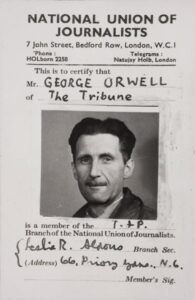
George Orwell was born Eric Blair in India in 1903 into a comfortable ‘lower-upper-middle class’ family. Orwell’s father had served the British Empire, and Orwell’s own first job was as a policeman in Burma. Orwell wrote in “Shooting an Elephant” (1936) that his time in the police force had shown him the “dirty work of Empire at close quarters”; the experience made him a lifelong foe of imperialism.
By the time of his death in 1950, he was world-renowned as a journalist and author: for his eyewitness reporting on war (shot in the neck in Spain ) and poverty ( tramping in London, washing dishes in Paris or visiting pits and the poor in Wigan ); for his political and cultural commentary , where he stood up to power and said the unsayable ( ‘If liberty means anything at all it means the right to tell people what they do not want to hear’ ); and for his fiction, including two of the most popular novels ever written: Animal Farm and Nineteen Eighty-Four .
The Orwell Foundation maintains a wealth of Orwell resources, free to access online, from Orwell’s essays and diaries , to a library of work about Orwell and his writing. Read on for an extended biography written by D.J. Taylor. Taylor is an author, journalist and critic. His Biography of Orwell, Orwell: the Life won the 2003 Whitbread Biography Award.
As part of our wider commitment to promote knowledge and understanding of Orwell’s life and work, the Foundation also regularly releases new short educational films. These are free to access on YouTube and include contributions from Orwell’s son Richard Blair, D. J. Taylor, and previous winners of the Orwell Prizes:
- The Night Orwell Died
- George Orwell and the Battle for Animal Farm
- ‘Some Thoughts on the Common Toad’: 75th anniversary film
The Orwell Foundation is an independent charity – please consider making a donation or becoming a Friend of the Foundation to support our work and maintain these resources for readers everywhere.
External links:
- The Orwell Society, an independent, worldwide membership society
- UCL Archives: Orwell Archive
- The Orwell Digital Archive
- George Orwell at the BBC
We use cookies. By browsing our site you agree to our use of cookies. Accept
Pardon Our Interruption
As you were browsing something about your browser made us think you were a bot. There are a few reasons this might happen:
- You've disabled JavaScript in your web browser.
- You're a power user moving through this website with super-human speed.
- You've disabled cookies in your web browser.
- A third-party browser plugin, such as Ghostery or NoScript, is preventing JavaScript from running. Additional information is available in this support article .
To regain access, please make sure that cookies and JavaScript are enabled before reloading the page.

George Orwell: The Literary Rebel’s Biography
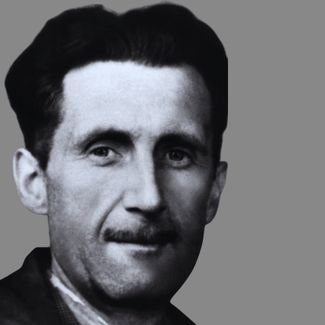
Introduction
George Orwell, a name etched in the annals of literature, resonates with the power of the written word. His life is an extraordinary saga of literary rebellion, an enduring symbol of brilliance, courage, and unyielding commitment to storytelling. In this meticulously crafted biography, we embark on a thrilling journey through the life of a man who defied norms and redefined the boundaries of literature.
As a child, Orwell was influenced by colonialism and a strict British upbringing. He was born in Motihari, India, on June 25, 1903. His education commenced in England at St. Cyprian’s School, an institution that would later inspire his scathing essay, “Such, Such Were the Joys.”
Orwell’s literary journey began while serving as a police officer in Burma. This experience provided him with firsthand insights into the oppressive mechanisms of imperialism, profoundly shaping his worldview. His discontent during this period laid the foundation for his scathing critiques of colonialism, reflected in his works “Burmese Days” and “Shooting an Elephant.”
Orwell’s life took a momentous turn with his involvement in the Spanish Civil War. He joined the fight against fascism and chronicled his experiences in “Homage to Catalonia,” an autobiographical account that intensified his commitment to socialism and his unwavering opposition to totalitarianism.
As we explore George Orwell’s life, we’ll traverse the realms of literary brilliance and personal challenges, from his early days to his enduring legacy. This biography paints a vivid portrait of a man who challenged the status quo, leaving a lasting impression on literature and history.
Early Life and Education
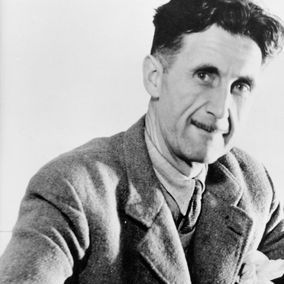
George Orwell’s early life was a tapestry woven with diverse influences. His colonial heritage was deeply rooted in the British Empire as Eric Arthur Blair was born in Motihari, India, on June 25, 1903. The strict norms and traditions of the time characterized his upbringing.
Orwell’s education commenced in England when he was sent to St. Cyprian’s School, a place that would significantly impact his later writings. Here, he experienced the rigidity and authoritarianism that he would later critique in his famous essay, “Such, Such Were the Joys.”
This period of his life was crucial in shaping his early perspectives. The influences of colonialism and the British educational system left an indelible mark, and the disparities and injustices he witnessed during these formative years deeply affected his worldview.
As we delve into his early life and education, we see the roots of his later literary and political convictions, setting the stage for the remarkable journey that would define George Orwell’s life.
Literary Beginnings
George Orwell’s literary journey commenced during his service as a police officer in Burma, an experience that served as the catalyst for his future as a writer and political critic. His experiences in Burma unveiled the stark realities of imperialism, an institution he would later passionately combat.
It was here that Orwell began to find his voice as a writer. He penned essays and observations, many of which criticized the oppressive nature of the colonial administration. The disparities between the British ruling class and the Burmese populace profoundly impacted him, sparking a growing sense of disillusionment with the imperialist system.
His experiences in Burma laid the foundation for some of his early literary works, notably “Burmese Days” and “Shooting an Elephant.” These writings reflected his disdain for the British Empire’s treatment of the colonized people and his disquiet as an agent of that system. This period marked the genesis of his commitment to anti-imperialist and anti-authoritarian ideals, defining his literary and political career.
Orwell’s literary beginnings in Burma were a harbinger of the powerful social and political critique that would become a hallmark of his work. These early experiences sowed the seeds of his lifelong dedication to challenging the status quo and advocating for social justice.
The Spanish Civil War
One of the pivotal and transformative chapters in George Orwell’s life was his involvement in the Spanish Civil War. Orwell’s decision to join the fight against fascism in Spain was a testament to his unwavering commitment to his ideals and marked a significant turning point in his life.
Orwell arrived in Spain in December 1936, joining a militia of leftist volunteers. His experiences on the front lines and amid a profoundly divided nation impacted him indelibly. During his stay in Spain, he was immersed in the intricacies of the political landscape, where he bore witness to the brutality of the Spanish Civil War. This conflict pitted the Republican government against Francisco Franco’s Nationalist forces.
Orwell documented his experiences in the autobiographical work, “Homage to Catalonia.” This book offered a raw and unfiltered account of his time in Spain, portraying the war’s struggles, betrayals, and complexities. It also solidified his commitment to socialism and his unwavering opposition to totalitarianism.
The Spanish Civil War shaped Orwell’s political beliefs and provided rich material for his future writings. In Spain, he witnessed the power struggles, propaganda, and the suppression of dissent. These themes would become central in his later literary masterpieces, “Animal Farm” and “Nineteen Eighty-Four.”
Orwell’s involvement in the Spanish Civil War was a defining moment that influenced his writing and intensified his dedication to fighting for justice and against oppressive regimes. This chapter of his life showcases his unyielding courage and principles, which would resonate through his literary legacy.
Literary Masterpieces
George Orwell’s literary masterpieces, “Animal Farm” and “Nineteen Eighty-Four,” are timeless treasures that resonate with readers worldwide. “Animal Farm” exposes the dangers of totalitarianism, political corruption, and manipulating ideals to achieve power in a satirical allegory of the Russian Revolution.
“Nineteen Eighty-Four” envisions a dystopian future marked by pervasive government control, surveillance, and the corruption of language for control. These novels serve as cautionary tales, shedding light on the vulnerabilities of human society to authoritarianism and propaganda. Orwell’s ability to craft gripping narratives around these profound themes showcases his literary genius and enduring relevance, making his works not just literature but essential tools for understanding the world’s complexities and safeguarding democratic values.
Personal Life and Struggles
George Orwell’s personal life was marked by an unyielding dedication to his craft despite enduring significant struggles. His battle with tuberculosis, a debilitating disease of his time, cast a shadow on his existence. Yet, it did not deter him from writing prolifically.
Orwell’s commitment to his work and principles remained unwavering even in the face of declining health. His passion for social justice, his experiences in Spain, and his time as a BBC propagandist during World War II profoundly influenced his life and writings.
His unyielding commitment to his ideals, even as his health declined, is a testament to Orwell’s indomitable spirit. His personal struggles with illness and the political climate of his era shaped him into a literary rebel who continued to challenge the status quo until the end of his days.
Legacy and Impact
George Orwell’s legacy is immeasurable, and his impact on literature, politics, and society remains profound. His name is synonymous with the fight for truth, justice, and the enduring power of the written word. Orwell’s ability to dissect complex socio-political issues and convey them in accessible prose is a testament to his literary prowess.
His two most famous works, “Nineteen Eighty-Four” and “Animal Farm,” continue to captivate readers with their relevance in today’s world. These novels explore themes of political corruption, censorship, and the manipulation of language to control reality. Their timeless quality makes them essential texts for understanding the complexities of power and the nature of human society.
Orwell’s impact extends beyond literature. His ideas have influenced political discourse and movements, particularly in anti-totalitarianism and advocacy for freedom of expression. For generations to come, his commitment to social justice and exposing power abuses will remain inspiring.
George Orwell’s legacy is a testament to the enduring importance of literature in shaping our understanding of the world and the enduring quest for truth and justice. His works will persist in shedding light on the path for those who dare to challenge the established norms and push the limits of thought and expression.
The Life of George Orwell is a thrilling biography that takes us through literary rebellion, political awakening, and personal triumph over adversity. His works continue to captivate and challenge readers, reminding us of the power of the written word to shape our understanding of the world. In an era where the themes of his novels resonate more than ever, George Orwell’s legacy remains an enduring testament to the enduring importance of literature.

Leave a Comment Cancel Reply
Your email address will not be published. Required fields are marked *
Save my name, email, and website in this browser for the next time I comment.

George Orwell Biography
George orwell 1903-1950.
George Orwell was the pen name of Eric Blair, a twentieth century writer, equally at home with journalism, essays, novels, literary criticism and social commentary. He was famous in all those areas, but will be particularly remembered for two of his novels, Animal Farm and Nineteen Eighty Four , both among the most significant works of literature of the twentieth century and two of the most influential. Indeed, many of George Orwell’s quotes from his works have become commonly known, and used as new English language phrases.
Three of Orwell’s non-fiction collections are classics of journalism. Down and Out in Paris and London (1933) tells the story of living as a tramp in those two rich cities; The Road to Wigan Pier (1937) is a close observation of the working class in the north of England and Homage to Catalonia (1938) is an account of his activities in the Spanish Civil War.
A keen observer of the trends of his time Orwell forged his two great novels from those observations and, particularly in the case of Nineteen Eighty Four he emerged as a kind of prophet, warning society about where it seemed to be heading. In the novel people have become dehumanised, governed by an unseen administration that controls them with a fast-growing technology. The novel makes the future look bleak. Governments, since the book came out, have often been warned by their critics of bringing the country closer to nineteen eighty four, with the increase of such things as censorship and camera surveillance. The language Orwell used in writing this novel contains many words and phrases which he employed to create the dystopian world of the novel .
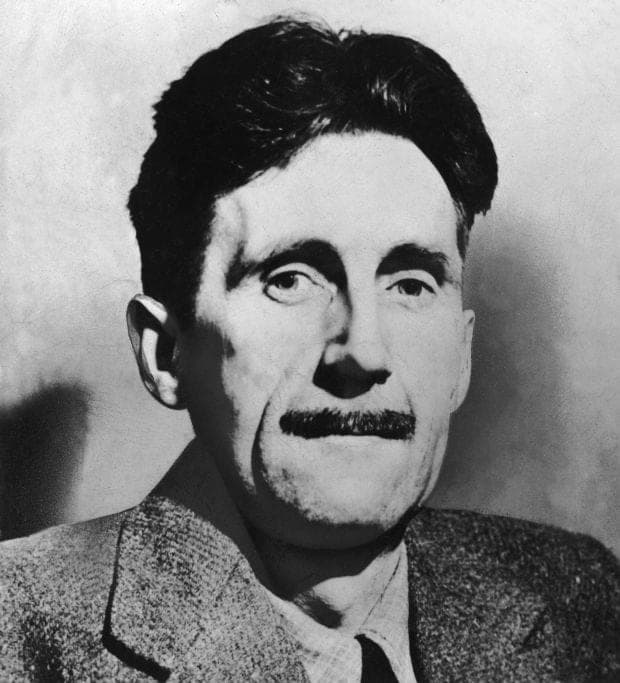
George Orwell photo
Some of the words and phrases he invented have entered into the English language and are used routinely, eg. Big Brother, thought police , Room 101 , thoughtcrime , doublethink .
Some other newspeak words are: joycamp (forced labour camp); goodthink (correct thinking); oldthink (thought that disregards the revolution); prolefeed (the endless stream of television propaganda).
Nineteen Eighty-Four has long stood and still stands, as a warning about the threat to democracy by a strong tendency towards authoritarianism by ‘strong man’ leaders. Indeed, such things as surveillance cameras that intrude on every aspect of life, even in the most advanced democracies, monitoring of emails, interactive television, the mushrooming of obfuscatory language in politics, such as ‘alternative facts,’ ‘fake news,’ etc. are firmly with us and just what Orwell predicted.
Animal Farm is a short novel that depicts the Russian Revolution of 1917 and the beginning of the Stalin era. The story is told using the techniques of allegorical fiction. The characters are animals and different groups of Soviet society are represented by the classes of animals, eg. The proletarians are sheep, the members of the Communist party are pigs, the security police are dogs etc. The novel is written in such a way as to be accessible to everyone and can be read on one level by a child. It is a remarkable book that explores the Revolution in great depth in a short text.
Apart from his linguistic inventiveness in his novels, Orwell’s style when writing essays and journalism is very plain and simple, clear and lucid. He set out rules for that kind of writing that included using short words, fresh metaphors if metaphors are needed, cut out any words that it is possible to cut out, don’t use scientific language or jargon or foreign phrases and don’t use the passive case. Employing those rules in his own writing Orwell produced a very high level of communication. One of his essays, How to kill an Elephant, written in stripped-down prose, for example, conveys immense feeling by the mere shock of the elephant’s death. While working as a policeman in Burma in 1930 Orwell witnessed a hanging and wrote about it in a piece, A Hanging . The reader feels the full horror of it as Orwell describes it in unemotional, factual, unadorned language.
Some writers’style or ideas are so distinct that their names become adjectives to describe those styles or ideas, as in Shakespearean and Miltonian . Orwellian has been added to that list. To describe something as Orwellian is to refer, not just to a kind of writing but a kind of situation in which a population is controlled by misinformation, surveillance, the rewriting of history and the policing of people’s thoughts.
Read more about England’s top writers >> Read biographies of the 30 greatest writers ever >>
- Pinterest 0
i feel like im gucci mane in 2006
Leave a Reply
Leave a reply cancel reply.
Your email address will not be published. Required fields are marked *
Save my name, email, and website in this browser for the next time I comment.

|






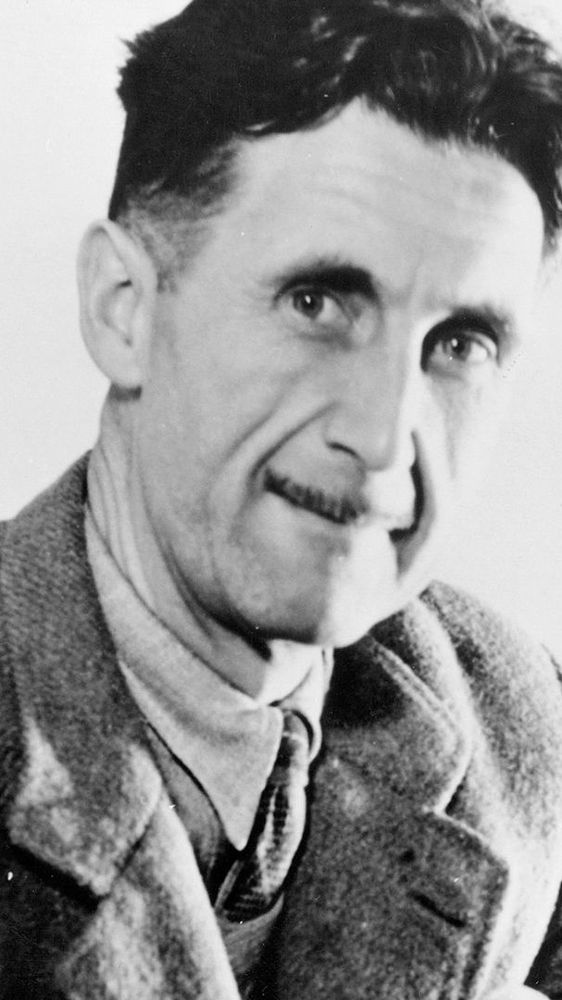

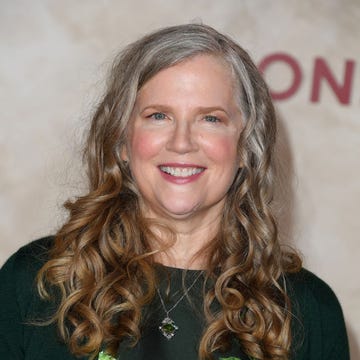
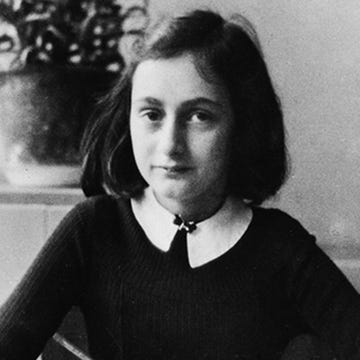
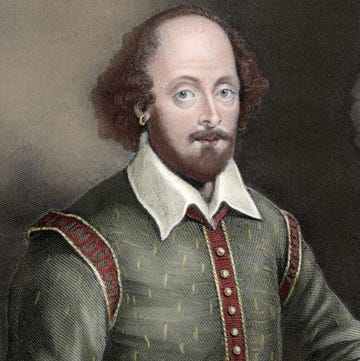
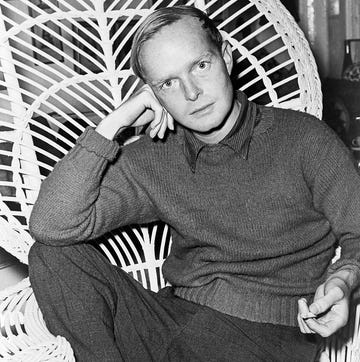

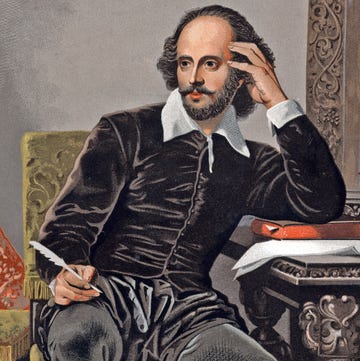
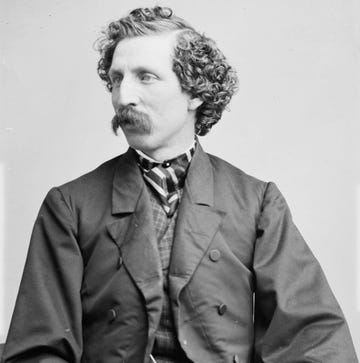
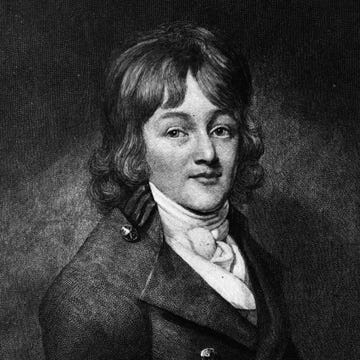
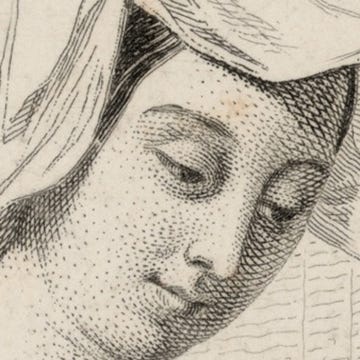
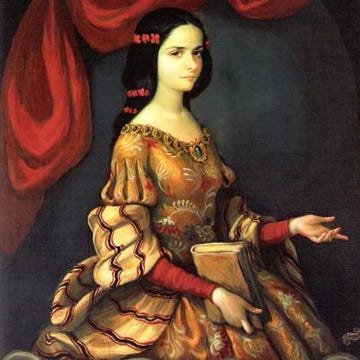
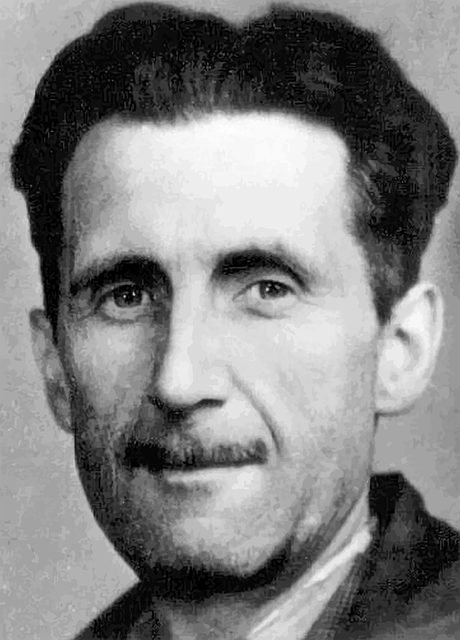
COMMENTS
George Orwell (born June 25, 1903, Motihari, Bengal, India—died January 21, 1950, London, England) was an English novelist, essayist, and critic famous for his novels Animal Farm (1945) and Nineteen Eighty-four (1949). The latter of these is a profound anti- utopian novel that examines the dangers of totalitarian rule.
George Orwell was an English novelist, essayist and critic most famous for his novels 'Animal Farm' (1945) and 'Nineteen Eighty-Four' (1949). Search 2024 Olympians
Eric Arthur Blair (25 June 1903 - 21 January 1950) was a British novelist, poet, essayist, journalist, and critic who wrote under the pen name of George Orwell, a name inspired by his favourite place River Orwell. [2] His work is characterised by lucid prose, social criticism, opposition to all totalitarianism (i.e. to both left-wing authoritarian communism and to right-wing fascism), and ...
Biography. George Orwell was an English novelist, essayist, and critic most famous for his novels Animal Farm (1945) and Nineteen Eighty-Four (1949). ... Orwell: A (Brief) Life, by D.J. Taylor. GEORGE ORWELL, the pen-name of Eric Arthur Blair, was born on 25 June 1903 in Motihari, Bengal, where his father, Richard Walmesley Blair, was working ...
Early Life. George Orwell, originally named Eric Arthur Blair, was born on June 25, 1903, in Motihari, Bengal Presidency, British India (present-day Bihar, India). He was the second of three children in the Blair family. His father, Richard Walmesley Blair, worked in the Indian Civil Service, and his mother, Ida Mabel Blair, took care of the ...
Biography of George Orwell George Orwell, (1903 - 1950) His journey from the Spanish Civil war to writing the classics of Animal Farm and 1984. ... His short essays investigated aspects of English life from fish and chips to the eleven rules of making a good cup of tea. ... "Biography of George Orwell", Oxford, www.biographyonline.net 3 ...
Read on for an extended biography written by D.J. Taylor. Taylor is an author, journalist and critic. His Biography of Orwell, Orwell: the Life won the 2003 Whitbread Biography Award. As part of our wider commitment to promote knowledge and understanding of Orwell's life and work, the Foundation also regularly releases new short educational ...
English author George Orwell published Nineteen Eighty-four in 1949 as a warning against totalitarianism. The novel, which centers on a dystopian society, is a classic of English literature. George Orwell, orig. Eric Arthur Blair, (born 1903 , Motihari, Bengal, India —died Jan. 21, 1950 , London, Eng.), British novelist, essayist, and critic.
George Orwell is the pen name of Eric Arthur Blair, born in 1903 in Motihari, Bengal, India, during the time of the British colonial rule. Young Orwell was brought to England by his mother and educated in Henley and Sussex at schools. The Orwell family was not wealthy, and, in reading Orwell's personal essays about his childhood, readers can ...
Introduction George Orwell, a name etched in the annals of literature, resonates with the power of the written word. His life is an extraordinary saga of literary rebellion, an enduring symbol of brilliance, courage, and unyielding commitment to storytelling. In this meticulously crafted biography, we embark on a thrilling journey through the life of a "Discover George Orwell's remarkable life ...
George Orwell (1903—1950) Eric Arthur Blair, better known by his pen name George Orwell, was a British essayist, journalist, and novelist. Orwell is most famous for his dystopian works of fiction, Animal Farm and Nineteen Eighty-Four, but many of his essays and other books have remained popular as well.His body of work provides one of the twentieth century's most trenchant and widely ...
A brief George Orwell biography: George Orwell was the pen name of Eric Blair, a 20th century writer, equally at home with journalism, essays, literature ... such as 'alternative facts,' 'fake news,' etc. are firmly with us and just what Orwell predicted. Animal Farm is a short novel that depicts the Russian Revolution of 1917 and the ...
George Orwell was born Eric Arthur Blair on June 25, 1903, at Motihari, Bengal, in India. His father, Richard Walmesley Blair, was a relatively minor official in the Opium Department, the British ...
The complete works of george orwell, searchable format. Also contains a biography and quotes by George Orwell. The Complete Works of. George-Orwell ... Orwell was shot in the neck (near Huesca) on May 20, 1937, an experience he described in his short essay "Wounded by a Fascist Sniper", as well as in Homage to Catalonia. ...
The following video provides a brief biography of the author known as George Orwell, including his childhood, young adult life, and writing career. For an e...
George Orwell was an English novelist, essayist, and critic famous for his novels Animal Farm (1945) and Nineteen Eighty-four (1949), the fictionalized but autobiographical Down and Out in Paris and London (1933), and Homage to Catalonia (1938), an account of his experiences in the Spanish Civil War.
A gun could offer protection, but as a civilian Orwell couldn't easily acquire one. His solution was to turn to Ernest Hemingway. Orwell visited Hemingway at the Ritz and explained his fears ...
George Orwell. Writer: 1984. Born the son of an Opium Agent in Bengal, Eric Blair was educated in England (Eton 1921). The joined the British Imperial Police in Burma, serving until 1927. He then travelled around England and Europe, doing various odd jobs to support his writing. By 1935 he had adopted the 'pen-name' of 'George Orwell' and had written his first novels. He married in 1936. In ...
However, Orwell grew dissatisfied and he resigned in 1927. George Orwell decided to become a writer. He also began living among the poor. In 1928 he journeyed to Paris. For a short time in 1932-1933, Orwell worked as a teacher in a small private school. In 1934 Orwell got a part-time job in a second-hand bookshop.
The bibliography of George Orwell includes journalism, essays, novels, and non-fiction books written by the British writer Eric Blair (1903-1950), either under his own name or, more usually, under his pen name George Orwell.Orwell was a prolific writer on topics related to contemporary English society and literary criticism, who has been declared "perhaps the 20th century's best chronicler ...
A Short Biography of George Orwell. George Orwell was born on 25 th June 1903 in Bengal in the class of Sahibs. His father serves the British official in the Indian civil services, whereas his mother belonged to French and was a daughter of a teak merchant in Myanmar Burma. Though they belong to the lower-middle class, they have the attitude of ...